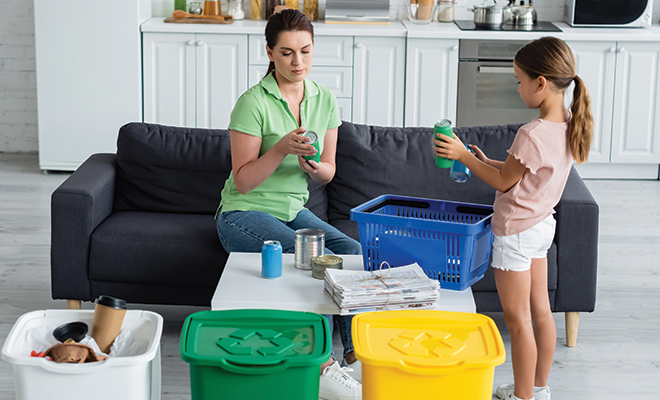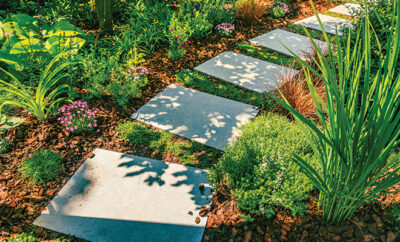
Sustainable Parenting: Raising Green Children
Being a new parent can feel even more overwhelming if you’re concerned about the environmental impact of your baby. From disposable diapers to plastic bottles and toys, everything we buy to care for a newborn feels like it’s bad for the environment.
Is there an alternative way to raise children and still show concern for the earth’s welfare? Follow these tips for more sustainable parenting.
Breastfeed if possible. The manufacture and transport of baby formula gives it a high carbon footprint. Women who can breastfeed are protecting the environment while ensuring their babies have a healthy source of nutrition. “There’s no food more locally produced, more sustainable or more environmentally friendly than breastmilk,” according to La Leche League. “Breastmilk benefits our environment as it requires no advertising, packaging or transport and results in no wastage or depletion of natural resources.”
Choose cloth diapers. The average American baby uses 5,000 to 6,000 disposable diapers on the way to becoming potty trained. According to the EPA, all those used diapers make up almost 10 percent of nondurable household waste in landfills. Although cloth diapers use natural resources for laundering and drying, they can be more environmentally friendly than disposables. They also can be less expensive, especially if you use them for more than one child.
Buy sustainable clothing. Because babies grow out of clothing so quickly, it’s often made from cheap synthetic materials. The fibers in these fabrics don’t break down easily in the environment and contribute to long-term pollution. Protect the environment by dressing children in sustainable, natural fabrics such as cotton and wool.
Make your baby’s food. You’ll find all kinds of pre-made baby food on your grocery store shelf. Like other processed foods, many store-bought baby foods contain more sugar and fewer nutrients than homemade. There’s a wealth of recipes online for making healthy and nutritional baby food. When you make your own using fresh ingredients, you also eliminate the extra containers and packaging from your trash bins.
Shop at local farmers markets. Buying local food helps the environment because the food travels a shorter distance. Another advantage of local food is that it usually tastes better because it’s sold right after being picked. When you buy from a small farmer, you know that you’re avoiding the fertilizers and pesticides used by big agricultural companies that are more interested in profit than the environment.
Reuse and recycle kid stuff. Raising a child means buying lots of clothes, toys, books, furniture and other products. The child will outgrow or discard many of these items before they wear out. You can reduce waste by borrowing kids’ items from friends and family, shopping secondhand and visiting your local library. Get in the habit of giving away the items your children no longer need.
Look for handmade toys. The commercial toy industry is the most plastic-intensive sector in the world. The United Nations reports that millions of used toys end up in landfills each year, where they will stay for decades or longer. Limit the number of plastic toys you buy for your baby and look for homemade toys made from natural materials such as cotton and wood. As children get older, foster their creativity by helping them make crafts from recycled materials.
Make your laundry eco-friendly. Families produce a lot of laundry, especially when children are young. You can lessen the environmental impact by washing full loads with the temperature set to warm, not hot. Check out the long list of eco-friendly laundry detergents that meet the EPA’s Safer Choice Standards at EPA.gov.
Use green housecleaning products. Avoid cleaning solutions that contain potentially harmful chemicals. Natural and organic solutions are safer for humans and pets while helping protect the environment. You’ll be protecting your indoor air quality along with the environment by making the switch to non-toxic and biodegradable cleaners.
Teach by example. When children are young, they want to imitate their parents and other important adults in their lives. This is the time to show them how much you care about nature by taking them on walks and excursions and talking about protecting the earth. Let them help you with gardening, recycling and composting. If you don’t have a garden, grow some houseplants and make it a family project.
Trying to adopt an eco-friendly lifestyle can be difficult when you’re busy being a parent. Sometimes convenience wins, but that doesn’t mean you should stop trying to protect the environment. The most important goal of sustainable parenting is passing on environmental awareness to the next generation. By raising children to love and respect the earth, we can help ensure that they will make mindful decisions in the future about their impact on the environment.
Sources: Sources bbc.com, epa.gov, nytimes.com and unicef.org.







